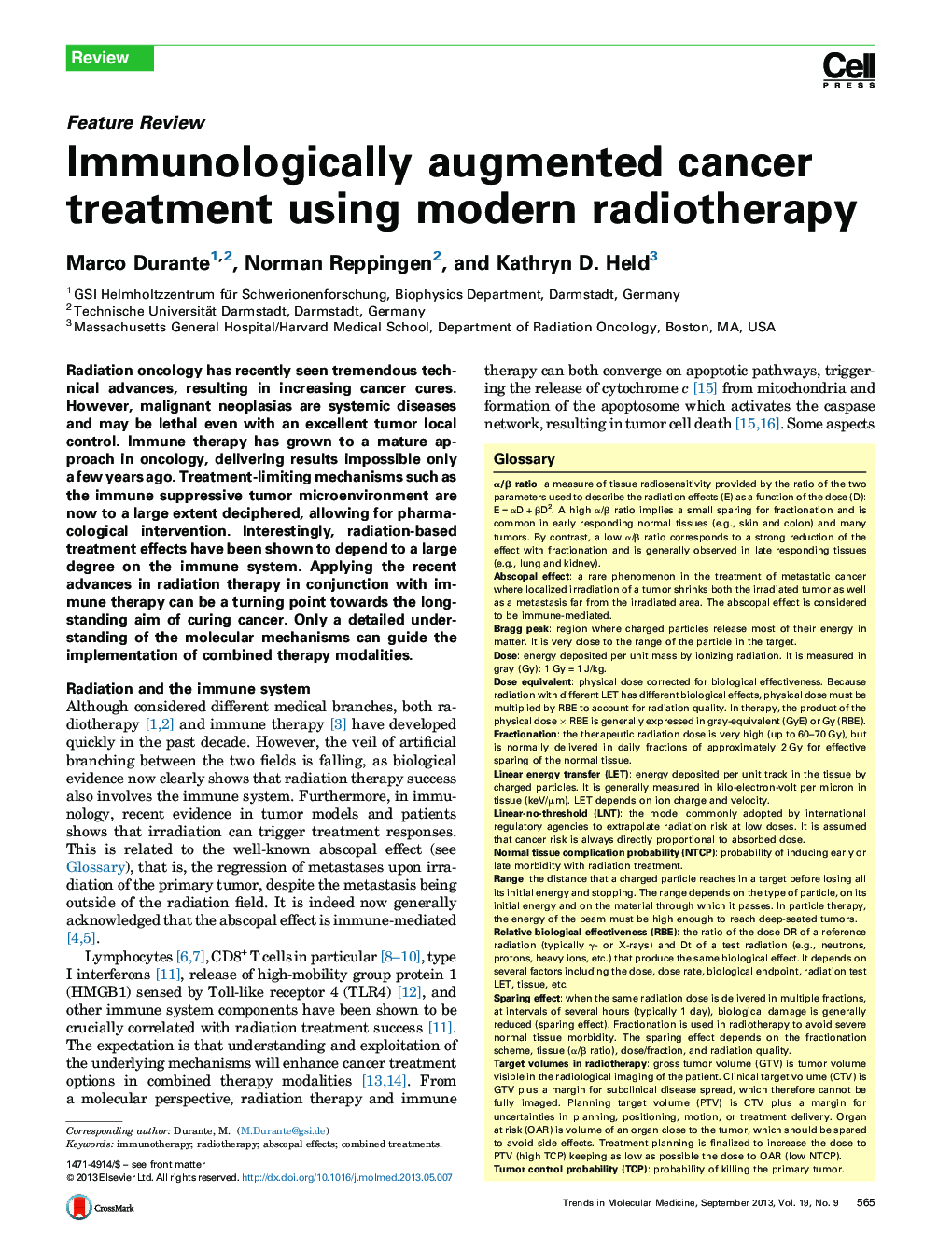| Article ID | Journal | Published Year | Pages | File Type |
|---|---|---|---|---|
| 2838591 | Trends in Molecular Medicine | 2013 | 18 Pages |
•Radiotherapy is rapidly improving but remains a local treatment.•The abscopal (distal) radiation effect is immune system mediated.•Combination with immunotherapy may result in a very effective systemic cancer cure.•Promising targets are CTLA4, STAT3, TGF-β, VEGF, COX-2, c-Met, NKκB, and IDO.
Radiation oncology has recently seen tremendous technical advances, resulting in increasing cancer cures. However, malignant neoplasias are systemic diseases and may be lethal even with an excellent tumor local control. Immune therapy has grown to a mature approach in oncology, delivering results impossible only a few years ago. Treatment-limiting mechanisms such as the immune suppressive tumor microenvironment are now to a large extent deciphered, allowing for pharmacological intervention. Interestingly, radiation-based treatment effects have been shown to depend to a large degree on the immune system. Applying the recent advances in radiation therapy in conjunction with immune therapy can be a turning point towards the long-standing aim of curing cancer. Only a detailed understanding of the molecular mechanisms can guide the implementation of combined therapy modalities.
